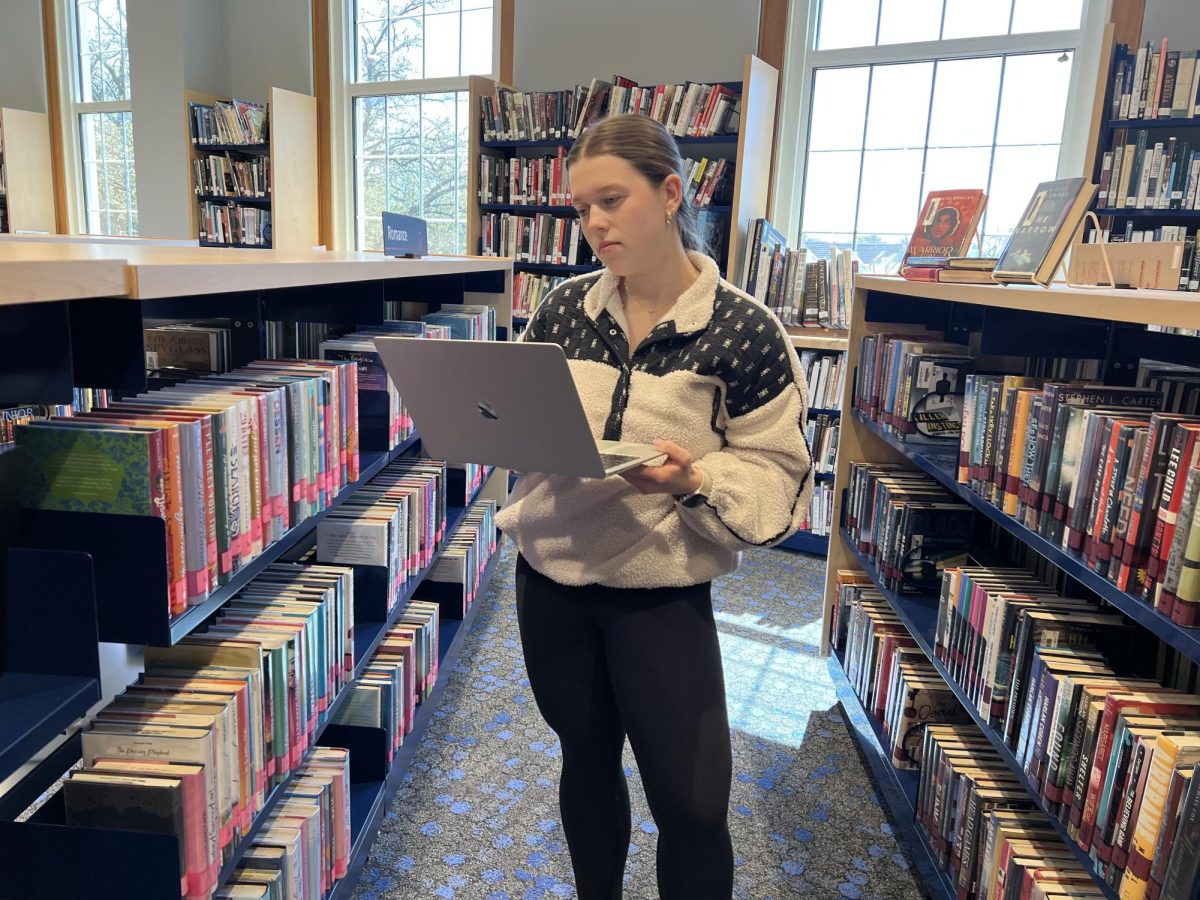For Miranda McPalin, volunteering at libraries has been a part of her life since third grade. She started as a volunteer doing various tasks such as handing out summer reading programs, and over the years, she has seen libraries evolve into a space that includes more than just physical books.
“Students can go to check out books for school, they can go there and study, and there are a lot of really nice study areas. Libraries also just bring people together. It’s a fun place to see people in the neighborhood,” student volunteer Miranda McParlin said.
Libraries have adapted to the digital trends in many ways, ensuring that they can continue to cater to the changing needs of the community. One major thing libraries have done is integrate more digital resources.
“One major way libraries have adapted from print collections to digital ones is by using things like ebooks and audiobooks where people can listen on their devices or read on their devices.” youth librarian Zoe Williams said. “It’s not just physical things that we offer anymore but a bigger thing too like databases for research or newspaper articles.”
Libraries provide a place for people who don’t have internet access, the role of libraries is continuing to expand beyond books alone.
“Not everybody has printers at home, or not everybody has a computer. The library can be a place where you can go and get Internet access,” Williams said.
In spite of the various digital platforms and advanced technology such as research databases, audio book platforms, and digital catalogs. Libraries continue to serve as a vital place for the community to gain critical digital skills. They are a great resource for people to navigate online information.
“Especially in schools, librarians teach people how to evaluate information online and then I think that’s becoming even more important just knowing how to evaluate something if you’re looking at a website,” Williams said.
As libraries adapt to the digital world, they are not just offering access to technology but also teaching people how to navigate it in a safe way.
“Libraries are trying their best to keep up with the digital trends but also make sure patrons are informed about information literacy and being able to differentiate what is a scam and whether their private information is being leaked and engaging with digital platforms in a way that’s mindful and safe,” library event coordinator Ashley Park said.
Events like independent reading offer a chance for community members to unplug from the internet and rediscover the joy of reading without any interruptions.
“A book dedicated to reading time with people is a great way to kind of challenge yourself to see if you are able to sit with your book and actually meditate through the reading. But it can also bring some less pressure on you to feel connected constantly online,” Park said.
Libraries are constantly evolving to offer more than just books. They have turned into community spaces where people can come and engage in things other than reading.
“There’s more to a library than just books. You can go there to do your schoolwork or go to a class that tells you about technology at the library,” McParlin said.
Libraries play a key role as a community space, offering opportunities for people to meet others with similar interests as them and engage in in-person connections despite the rise of digital interactions.
“With the digital world we live in, it gets harder and harder for people to have face-to-face interactions. A library is a great space to be able to meet new people maybe or connect over books,” Park said.




